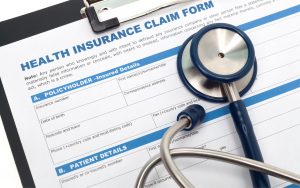
Health Navigator NY radio and television content, social media messaging, and this website offers consumers information, resources , and stories of real people actively engaged in their health care.
The streaming player is available beginning at 10:35 a.m.
Guests: Dr. Indu Gupta, Onondaga County Health Commissioner
Bryon Backenson, New York State Department of Health Research Scientist and SUNY Albany Assistant Professor of Epidemiology and Biostatistics
GUEST: Carrie Scholz, a patient advocate, Health Navigation of Central New York.
Guest: Dan Goldberg, Politico NY’s Senior Reporter on Health Policy
Guest: Charles Bell, Programs Director, Consumers
Guest: Richard Sagall, MD, the President of NeedyMeds
“Health Navigator NY” will look at how you can find reviews, bios and histories of doctors and health professionals. Our guest will be Karen Laing, the CEO of Health Literacy for All, Inc.
Guest: Amy Goyer – AARP’s Home and Family Expert; author of Juggling Life, Work, and Caregiving
Guest: Cynthia Rudder, PhD, a consultant with the National Consumer Voice for Quality Long-term Care.
Guest: Bill Hammond, Health Policy Director, Empire Center
Guests: Christopher Caruso, Executive Director of Community Schools at the New York City Department of Education
Reuben Jacobson, the Deputy Director for the Coalition for Community Schools
If you need legal advice, you talk to a lawyer—an advocate. As the healthcare system gets more complicated, it might be a good idea to research a health advocate to work with you and on your behalf. Today “Health Navigator NY” looks at what a health advocate is and how you can find one. Our guest for this week’s “Health Navigator” segment is Trisha Torrey, founder and director of the Alliance of Professional Health Advocates and the founder of Advoconnection.com.
Beth van Bladel, Director of the Capital Region Patient Advocacy, will explain how you can better prepare to go to the doctor.
Betsy Lowe, a patient and family advisor at Beth Israel Deaconess Medical Center
AND
Catherine (Cait) DesRoches, DrPH (Doctor of Public Health) and the Open Notes Executive Director.
Charles Bell, programs director for the Consumers Union
Nancy Landor, Senior Director of Strategic Quality Initiatives at the Healthcare Association of New York State
Cindy Nappa, Privacy Officer at Upstate Medical University
Teresa Kruisselbrink, is a certified genetic counselor at the Mayo Clinic
Cynthia Rudder, Ph.D., semi-retired consultant for the National Consumer Voice for Quality Long-Term Care/Founder of the Long Term Care Community Coalition, an organization that advocates for nursing home residents in NYS.
Health Navigator NY features Cynthia Rudder, PhD, a consultant with the National Consumer Voice for Quality Long-term Care, on how to select the right nursing home.
We learn about the risks and benefits of clinical trials from David Henderson, MD, the Deputy Director for Clinical Care and Associate Director for Hospital Epidemiology and Quality Improvement at the National Institutes of Health Clinical Center.
We will learn the difference between a Health Savings Account (HSA) and a Flexible Spending Account (FSA). How can you get the most out of each?
On this week’s “Health Navigator NY,” we explore strategies to make your healthcare more affordable. Our guest is Chuck Bell, the Programs Director for the Consumers Union.
It’s a tough irony to swallow. While Congress has been debating repealing and replacing the Affordable Care Act, nationally, more people signed up for the healthcare for the exchanges by last month’s deadline than last year. Here in New York, the Health Department is reporting an increase of 28 percent in sign-ups from a year ago. Today on our Health Navigator NY segment, we are going to ask two questions 1) How are hospitals dealing with the uncertainty over the Affordable Care Act? 2) What does this uncertainty mean for consumers, especially consumers in rural counties? Our guest today is Bea Grause, the President of the Healthcare Association of New York State.
Health Navigator NY provides an overview of the benefits and limitations of telemedicine, a developing technology that allows remote connections to doctors, particularly through video conferencing.
Our guests are: Carolyn Morris, MHSA, CTPM, Director of Telehealth Planning and Development at the Delaware Department of Health and Social Services; Ingrid A. Pretzer-Aboff, PhD, RN, an Associate Professor at the School of Nursing at the University of Delaware; and then, Charles Rothberg, MD, the President-Elect of the Medical Society of the State of New York.
“Health Navigator NY” explores hidden, reputable resources consumers can use, particularly when it comes to medication questions. Our guest will be N. Lee Rucker, M.S.P.H., a Senior Advisor at the National Council on Patient Information and Education and Founder of Enhance Value Health Policy Consulting.
About | Every Monday for the next six months, WCNY presents “Health Navigator NY,” a new feature of WCNY’s “The Capitol Pressroom” that will help make New Yorkers become savvier healthcare consumers. Host Susan Arbetter will focus on common questions that often have hard to find answer Subscribe to the “Health Navigator NY” podcasts to help you navigate the healthcare system.
Every Monday for the next six months, WCNY presents “Health Navigator NY,” a new feature of WCNY’s “The Capitol Pressroom” that will help make New Yorkers become savvier healthcare consumers. Host Susan Arbetter will focus on common questions that often have hard to find answers including what should you do if your health insurance makes an error but won’t admit it? Can you dispute the bill with a third-party? If so, who do you call? Subscribe to the “Health Navigator NY” podcasts to help you navigate the healthcare system.
Welcome to Health Navigator NY, a multiplatform project developed by WCNY to help New Yorkers navigate the health care system and engage in the management of their own health care needs. Health Navigator NY radio and television content, social media messaging, and this website offers consumers information, resources , and stories of real people actively engaged in their health care. Consumers may also submit suggestions of topics for Health Navigator NY to explore as well as share their personal stories of success, frustration, and confusion regarding accessing health care services.
Why is becoming a smart health care consumer important? Here are just a few reasons. Health care insurance plans and medical bills are often difficult to decipher, information about physicians challenging to acquire, and a recent study reported the #3 killer of Americans – just behind cardiac disease and cancer – is medical errors. The NYS Department of Health cites one way to combat medical errors is for patients “to be active members of their health care teams.” The health care system is complex, with policies, rules, and regulations frequently changing and patients often unsure of their rights and how to negotiate this ever-changing landscape. And, health care is expensive. A 2015 HealthMine survey revealed that while 86 percent of respondents believe it’s important to compare costs before undergoing medical testing or treatment, 64 percent rarely comparison shop. Knowledge and engagement are keys to becoming savvy health care consumers.
Health Navigator NY is supported by the New York State Health Foundation (NYS Health). The mission of NYS Health is to expand health insurance coverage, increase access to high-quality health care services, and improve public and community health. The views presented here are those of the creators of Health Navigator NY and not necessarily those of the New York State Health Foundation or its directors, officers, and staff.
The New York State Health Foundation (NYSHealth) is a private, statewide foundation dedicated to improving the health of all new Yorkers, especially the most vulnerable. Today, NYS Health concentrates its work in to two strategic priority areas: building health communities and empowering health care consumers. The Foundation is committed to making grants, informing health policy and practice, spreading effective programs to improve the health care system and the health of New Yorkers, serving as a neutral convener of health leaders across the State, and providing technical assistance to its grantees and partners. For more information about the Foundation’s work in consumer empowerment, including reports, grant descriptions, and other resources, visit http://nyshealthfoundation.org/priority-areas/empowering-health-care-consumers
Do you have a question, comment, suggestion or story? Share it with us below!
Health Navigator NY Resources
In conjunction with the weekly radio broadcasts of Health Navigator NY on The Capitol Pressroom, recommended online resources have been collected to enable further exploration of Health Navigator NY topics. Resources including media articles, reports, studies, and more that provide additional information focused on helping empower healthcare consumers. Resources are organized by topic.
Resources:
Tips:
RESOURCES:
Find an advocate to help make sure you are heard.
https://www.healthnavigationofcny.com
This article not only provides practical strategies for getting heard by your doctor, but also some statistics about doctor-patient communication.
http://www.webmd.com/a-to-z-guides/features/be-heard#1
NYS Department of Financial Services, a resource for information about healthcare insurance as well as a place to file a complaint about a product or service including medical bills and health insurers.
http://www.dfs.ny.gov/insurance/ihealth.htm
http://www.dfs.ny.gov/consumer/fileacomplaint.htm
Article from The Atlantic on sexism in the emergency room
https://www.theatlantic.com/health/archive/2015/10/emergency-room-wait-times-sexism/410515/
This is a helpful handout for you to use when preparing to visit your doctor.
https://www.nia.nih.gov/sites/default/files/talking_with_your_doctor_presentation_handouts_508.pdf
Resources:
Politico NY’s Health Newsletter — http://www.politico.com/states/new-york/health-care
Or use this link: https://secure.politico.com/registration
From the Center:
— Larry Levitt at Kaiser Family Foundation http://www.kff.org/person/larry-levitt/
— Timothy Jost at Health Affairs http://healthaffairs.org/blog/author/jost/
—Margot Sanger Katz, at the NYT https://www.nytimes.com/by/margot-sanger-katz
From the Right:
—Avik Roy at Forbes —https://www.forbes.com/sites/theapothecary/2017/06/23/the-new-senate-republican-bill-will-transform-american-health-care/#86d141643184
From the Left:
—Sarah Kliff at Vox.com https://www.vox.com/authors/sarah-kliff
http://www.consumerreports.org/drug-prices/why-drug-costs-keep-rising-what-you-can-do-about-it/
http://www.consumerreports.org/drugs/6-tips-for-finding-the-best-prescription-drug-prices/
http://www.consumerreports.org/drugs/doctors-and-rx-prices-ending-the-silence/
http://www.consumerreports.org/cro/news/2015/08/is-it-ok-to-buy-medicine-online/index.htm
Find help with the cost of medicine.
Look for good prices on prescriptions.
This NPR feature suggests ways to shop smart for prescription medications whether or not you have insurance.
This Huffington Post article has some tips on how to save money on prescriptions. http://www.huffingtonpost.com/entry/10-little-known-tips-for-saving-money-on-health-care_us_588b6f96e4b0cef5cf878215
Saving money on prescription medications – good and bad ideas!
Statewide resources are there to find doctors’ ratings and histories:
https://www.nydoctorprofile.com/
Not only can you find out about your doctor, his history and specialties, but for those who are immigrants, the website lists which doctors regularly use translation services, and are those services done by phone or an in-person translator. In addition, the website now has a link you can call in for information from that website in Spanish, Creole, Russian, and Chinese.
https://www.health.ny.gov/professionals/doctors/conduct/
This site allows you to file a complaint or see which doctors have been disciplined in the past.
Similar pages are run by the Department of Health for hospitals and by the Office of Mental Health for mental health providers, etc.
http://www.Healthliteracyforall.org
This site, developed by Karen Laing, is all about health literacy. Below are some selected topics from Karin and the site.
What ways can you shop around for a doctor or a surgeon?
What can you know about your doctor before you go in for a procedure?
What happens if you see a red flag?
Stop and reevaluate.
Resources
Eldercare.gov will help you find your local agency on aging. It has a number of other resources to help you in your work as a caregiver.
The AARP website has tips on caring, as well as a community of support.
Amy Goyer’s Book Juggling Life, Work, and Caregiving
https://aging.ny.gov/Caregivers/Index.cfm
This NYS Office for the Aging site offers resources for caregivers, professionals and providers to find information and assistance. This site also states that “in New York State approximately 3 million caregivers provide more than 2.6 billion hours of care to loved ones each year. The economic value of this care is 32 billion dollars.”
Resources:
With nursing homes, there are both federal and state regulations in place. Be sure to check out both when looking at placing a loved one in a home.
Resources:
This public policy blog provides a concise analysis of the impact to New Yorkers of the latest version of the American Health Care Act.
https://www.empirecenter.org/publications/how-ahca-2-0-would-affect-ny/
This article examines the issue of pre-existing conditions coverage in the American Health Care Act. President Trump says that coverage for them will be in the legislation, but there is some question about at what cost?
This NY Times story sheds light on the possible impact of the American Health Care Act to the employer health care system.
https://www.nytimes.com/2017/05/09/upshot/gop-bill-could-affect-employer-health-coverage-too.html
More information about pre-existing condition insurance coverage.
http://money.cnn.com/2017/05/01/news/economy/obamacare-trump-pre-existing-conditions/
As the Senate begins to change/amend the House version of the AHCA, this link may be helpful:
http://kff.org/interactive/proposals-to-replace-the-affordable-care-act/
Resources:
How to find a health advocate
The term patient advocate is sometimes defined differently from a health advocate – see the description of a patient advocate and compare it to the health advocate definition in the next link.
http://socalhealthadvocates.com/what-patient-advocate/
This site describes the role of a health advocate.
http://socalhealthadvocates.com/health-advocate-health-advocate-do/
The case for the importance of a health care advocate.
This article includes information on not only patient advocates, but medical billing advocates.
Resources: www.opennotes.com
https://learnhealthtech.com/what-is-open-notes/#abh_posts
A quick overview of the use of Open Notes in the healthcare industry.
http://www.rwjf.org/en/how-we-work/grants/grantees/OpenNotes.html
A grant to study the effects of utilizing Open Notes with 1900 patients showed “that when patients have access to their doctors’ notes, they feel more in control of their health care, better understand their medical issues, and report they are more likely to take their medications as prescribed.”
http://www.bidmc.org/Patient-and-Visitor-Information/MyHealthRecords/PatientSite/OpenNotes.aspx
The use of Open Notes at one medical center.
For more information on disputing a claim contact:
NY Attorney General’s Health Care Bureau:
https://ag.ny.gov/bureau/health-care-bureau
Community Health Advocates:
http://www.communityhealthadvocates.org/
1-888-614-5400
New York Department of Financial Services
Look under Consumers / Health Insurance Resource Center / Protection from Surprise Bills
To get help, go to File a Complaint
You can also call:
Federal Agency for Healthcare Research and Quality (AHRQ)
Working with Patient and Families as Advisors
This is an implementation handbook, a guide for hospitals in work with patients and families.
American Institute for Healthcare (AIR)
Patients and Family Engagement in Healthcare
This website includes an interesting video re-envisioning the delivery of healthcare to include “meaningful engagement of patients and families in every aspect of health and healthcare.”
Institute for Patient and Family Advisory Councils (IPFCC)
Creating Patient and Family Advisory Councils
This six page document is a how-to guide to create councils including explaining the purpose and benefits of them.
Better Together: Partnering with Families
This links to a toolkit for “changing the concept from families as visitors to families as partners.”
Beryl Institute
The Beryl Institute is “the global community of practice dedicated to improving the patient experience through collaboration and shared knowledge.” See below for a link to a toolkit with testimonials regarding the creation of a patient and family advisory council.
Patient and Family Advisory Council
The Healthcare and Patient Partnership Institute (H2Pi)
The Healthcare and Patient Partnership Institute
This link takes you to the organization’s website.
John Hopkins Hospital
http://www.hopkinsmedicine.org/the_johns_hopkins_hospital/about/patient_family_advisory_council/
This links to an overview of the hospital’s patient and advisory council and information about the council’s accomplishments.
Upstate Medical University’s Privacy Policy
http://www.upstate.edu/hospital/patients/admitting/privacypractices.php
HIPAA summary – according to the Federal Government
https://www.hhs.gov/hipaa/for-professionals/privacy/laws-regulations/
https://www.hhs.gov/hipaa/for-individuals/guidance-materials-for-consumers/index.html
NY Times Article on misapplication of HIPAA
NYS Health Foundation on HIPAA
http://nyshealthfoundation.org/uploads/general/conversation-about-hipaa.pdf
National Society of Genetic Counselors –
Mayo Clinic/Genetic Testing —
http://www.mayoclinic.org/tests-procedures/genetic-testing/basics/definition/prc-20014802
HIPAA gives you the right to your medical records —
http://www.nolo.com/legal-encyclopedia/getting-medical-records-information-rights-32220.html
New York State Department of Financial Services Long Term Care Insurance resource page
http://www.dfs.ny.gov/consumer/ltc/ltc_index.htm
http://www.dfs.ny.gov/consumer/ltc/ltc_index.htm
Fitch Ratings
1-800-75-FITCH
https://www.fitchratings.com/site/search?content=research&request=Long%20Term%20Care%20Insurance
Moody’s Investor’s Service
1-212-553-0377
www.moodys.com
Standard & Poor’s
1-212-512-3108
www.standardandpoors.com
Find information on clinical trials all over the country:
Why should I participate in a clinical trial?
https://www.nih.gov/health-information/nih-clinical-research-trials-you
What are the basics of a clinical trial?
https://www.nih.gov/health-information/nih-clinical-research-trials-you/basics
Health Savings Account resource from the U.S. Treasury
https://www.treasury.gov/resource-center/faqs/taxes/pages/health-savings-accounts.aspx
The HSA Authority
http://www.thehsaauthority.com/hsa_guidelines.aspx
About FSAs in New York State
https://www.healthcare.gov/have-job-based-coverage/flexible-spending-accounts/
What can I use my HSA for?
Medical and Dental Expenses (Including the Health Coverage Tax Credit)
https://www.irs.gov/pub/irs-pdf/p502.pdf
More information on Flexible Spending Accounts
http://www.mvphealthcare.com Search for Ancillary funding or spending accounts
How to get health insurance help in New York: A quick resource from Consumer Reports
Health Cost Estimator
About half the insurance companies in New York do not currently offer health estimator tools. If you need quick help finding a health cost-estimator, especially if your insurance company does not have one, check these out:
Search Drug Prices:
The New York State Board of Pharmacy publishes an annual list of the 150 most frequently prescribed drugs, in the most common quantities. The New York State Department of Health collects retail price information on these drugs from pharmacies that participate in the Medicaid program and from pharmacies that submit their retail price information directly to the Department of Health. This site allows you to search for specific drugs from the most frequently prescribed drug list.
https://apps.health.ny.gov/pdpw/SearchDrugs/Home.action
Other resources for download:
If the ACA is repealed, rural hospitals will face serious financial challenges that could affect access and the communities, including possible loss of jobs. .
http://medcitynews.com/2017/01/aca-repeal-rural-hospitals/
During this week’s Health Navigator NY, we discuss calling your Congressional Representative with questions. Find out who your representative here.
http://www.house.gov/representatives/find/
This NPR health issues report outlines some concerns about the effects on hospitals if the ACA is repealed. It draws on comments from two hospitals and a Kaiser Foundation report.
This article explores how the ACA affected rural hospitals including some negative impacts, and what might happen in rural America if it is repealed.
http://www.npr.org/2017/01/14/509807198/what-an-obamacare-repeal-would-mean-for-rural-hospitals
Times are already tough for rural hospitals – a look at what some of the challenges are.
A look at the possible impact on older adults if the ACA is repealed.
According to this article, Republican proposals to replace the ACA don’t remove Medicare reforms instituted under President Obama.
It’s wait and see time for some rural communities and their hospitals who didn’t appear to benefit as much as anticipated by the ACA but wonder what is in store for them in the future.
This is the link to HANYS, the only statewide hospital and continuing care association in New York, representing 500 not-for-profit and public hospitals, nursing homes, and other healthcare organizations.
PBS NewsHour eight-minute piece on uses of telemedicine
https://www.youtube.com/watch?v=u1-MFo7_n-Y
This Forbes piece offers a quick overview of the use of technology to provide telemedicine services to patients. It also outlines what technology doctors need to participate as telemedicine providers.
http://www.forbes.com/sites/centurylink/2017/01/20/is-2017-the-year-of-telemedicine/#a93055e72884
Information about the University of Delaware’s new telehealth certificate coordinator program
http://www.udel.edu/udaily/2016/august/telehealth-certificate-coordinator-program/
Telehealth has great potential to increase access to and quality of healthcare in rural communities. Technology can now allow rural patients to see specialists without leaving their communities, permits local providers to take advantage of distant expertise, and improves timeliness of care.
https://www.ruralhealthinfo.org/topics/telehealth
Telemedicine: It’s a no brainer, is an animated 2012 consumer awareness video winner.
The post below cites the need for better tools for consumers to be able to find and compare prices and quality among health care providers to aid in decision-making.
Consumer Reports recently examined website tools for use in evaluating health care cost and quality from 11 health insurance companies that do business in New York as well as five websites open to all. They then rated the sites on a number of categories. One thing was clear – all of them did have some level of useful information.
http://www.consumerreports.org/health-insurance/health-insurance-help-in-new-york/
The Health Care Transformation Task Force describes itself as “an industry consortium that brings together patients, payers, providers, and purchasers to align private and public sector efforts to clear the way for a sweeping transformation of the U.S. health care system. The Task Force believes the interests of consumers/patients must be considered during all aspects of health care delivery transformation.” Its August, 2016 22-pagewhite paper provides “a set of questions to facilitate consideration of consumer priorities in the development of person-centered, value-based care policies and practices for improving U.S. health care.”
Even when price comparison tools exist, consumers don’t necessarily “shop around” for their health care needs. This article tries to explain why.
http://www.chcf.org/articles/2016/03/why-dont-patient-price-shop
A study done by Harvard and USC showed that not even high deductibles motivate health care consumers to seriously shop-around for health care.
A site sponsored by health system pharmacists that provides medication information.
One-stop shopping for information on health, wellness, and disorders as well as prescription drugs, over-the-counter medicines, herbs, and supplements.
The National Council on Patient Information and Education’s site dedicated to advancing the safe, appropriate use of medicines through communication of information to consumers and health care professionals.
A new resource in Albany for medication review involves a clinical pharmacist helping meet the needs of those with chronic diseases.
http://www.acphs.edu/press-releases/acphs-mvp-and-capital-care-collaborate-patient-care-initiative
Listed below are stories from Health Navigator NY visitors, viewers, and listeners. You are encouraged to tell us your healthcare consumer tales and as we did with the stories below, your name and any identifying characteristics will be removed. So click on the “Get Engaged” tab on the Health Navigator website and ask your questions or share your stories. Your comments provide suggestions for future radio and TV Health Navigator NY stories. Thank-you!

“My insurance company basically said we had to buy our family’s prescription medicine from a mail order pharmacy. I wasn’t happy about it because we really try to ‘buy local.’ Then I discovered that our grocery store pharmacy was approved to deliver mail order pharmacy services. Happy day! The only thing is, and it’s kind of silly, even though the store is just 10 minutes away my prescriptions have to be delivered through the mail (shipping free).”
 “I did something to my knee and was sent to a specialist, who got me scheduled for surgery for an ACL repair. After I came to, the surgeon told me my ACL was fine and it was arthritis and some meniscus damage. Since then I’ve talked with other people who complained about this same specialist and the mistakes he’s made when treating them. I lost work time, didn’t get to use my vacation time to have fun, and spent unnecessary money on co-pays. Is there anyone or anywhere that I can file a complaint about this doctor’s lack of expertise?”
“I did something to my knee and was sent to a specialist, who got me scheduled for surgery for an ACL repair. After I came to, the surgeon told me my ACL was fine and it was arthritis and some meniscus damage. Since then I’ve talked with other people who complained about this same specialist and the mistakes he’s made when treating them. I lost work time, didn’t get to use my vacation time to have fun, and spent unnecessary money on co-pays. Is there anyone or anywhere that I can file a complaint about this doctor’s lack of expertise?”
 “These days it is hard to get to see a doctor. I like to have a doctor be the one to take care of me when I’m sick. But I am changing my tune. The last few times when I called for a doctor’s appointment it was going to take several days to see him, but I could see a nurse practitioner instead the same day. I was pretty impressed. She knew her stuff and was easy to talk to. Now I ask for her, that’s how good she is! I save time and frustration and I guess the insurance companies save some money too.”
“These days it is hard to get to see a doctor. I like to have a doctor be the one to take care of me when I’m sick. But I am changing my tune. The last few times when I called for a doctor’s appointment it was going to take several days to see him, but I could see a nurse practitioner instead the same day. I was pretty impressed. She knew her stuff and was easy to talk to. Now I ask for her, that’s how good she is! I save time and frustration and I guess the insurance companies save some money too.”
 “My friend is a nurse in a pediatrician’s office and she tells me horror stories about parents thinking they have to bring their kids to the doctor for the littlest things. She takes calls from parents with sick children, listens to what is going on with the kids, and then advises them whether or not they should see the doctor or whatever. Sounds pretty efficient and I bet it makes parents feel less worried, and they might even save the cost of a doctor’s visit.”
“My friend is a nurse in a pediatrician’s office and she tells me horror stories about parents thinking they have to bring their kids to the doctor for the littlest things. She takes calls from parents with sick children, listens to what is going on with the kids, and then advises them whether or not they should see the doctor or whatever. Sounds pretty efficient and I bet it makes parents feel less worried, and they might even save the cost of a doctor’s visit.”
 “I don’t have a story but I do have a question. Why do so many people who work at hospitals smoke? Shouldn’t they of all people know better?”
“I don’t have a story but I do have a question. Why do so many people who work at hospitals smoke? Shouldn’t they of all people know better?”
 “Everybody, even commercials on TV, keep saying switch to generic drugs. But maybe not. I was taking a brand name thyroid pill every day until I had a notice from the insurance company that they were raising the cost of my medicine and I could save a lot by changing to a generic version. I did that for almost two years. And the whole time my bloodwork was up and down, so my doctor said he was putting me back on my old pills. Now everything is back to normal. The doctor said this is not unusual. So saving money with generic drugs is good but it doesn’t always work out.”
“Everybody, even commercials on TV, keep saying switch to generic drugs. But maybe not. I was taking a brand name thyroid pill every day until I had a notice from the insurance company that they were raising the cost of my medicine and I could save a lot by changing to a generic version. I did that for almost two years. And the whole time my bloodwork was up and down, so my doctor said he was putting me back on my old pills. Now everything is back to normal. The doctor said this is not unusual. So saving money with generic drugs is good but it doesn’t always work out.”
 “It seems like the little guy can never win with insurance companies. I called the NYS Department of Health to get some advice and the person on the phone referred me to the NYS Department of Financial Services. I figured I was getting the runaround but that really is the place to go. I don’t know if we’ll be successful getting the insurance company to fix what I think is a mistake, but at least I know more of what to do.”
“It seems like the little guy can never win with insurance companies. I called the NYS Department of Health to get some advice and the person on the phone referred me to the NYS Department of Financial Services. I figured I was getting the runaround but that really is the place to go. I don’t know if we’ll be successful getting the insurance company to fix what I think is a mistake, but at least I know more of what to do.”
 My daughter had surgery recently and the doctor presented me with a prescription for one of the opioid painkiller drugs we hear so much about these days. I am scared of them. I asked the doctor if something else could be prescribed. He explained how effective the drug was that he wanted her to take. I shared my fears about her getting addicted, you know the kinds of things we are being warned about on TV. With a shake of his head, he gave me a different prescription to fill. Parents especially, we have to speak up and talk with our kids’ doctors.
My daughter had surgery recently and the doctor presented me with a prescription for one of the opioid painkiller drugs we hear so much about these days. I am scared of them. I asked the doctor if something else could be prescribed. He explained how effective the drug was that he wanted her to take. I shared my fears about her getting addicted, you know the kinds of things we are being warned about on TV. With a shake of his head, he gave me a different prescription to fill. Parents especially, we have to speak up and talk with our kids’ doctors.
 I am the person taking care of my 80-year-old mom. Despite some physical challenges that definitely do limit her, she has a great attitude about life. It’s been interesting to watch some of the doctors and nurses we meet. Mom is perfectly happy to do whatever they tell her to do. But I am glad I take her to her appointments because I see a pretty pervasive attitude of laidbackness in their treatment of her. I think about this because I am not getting any younger either and I want medical personnel who are going to help me have as great a life as I can. I have to push for things like physical therapy for my mother, even though, to be honest, she doesn’t always want to make the effort. When I do push or ask questions, her medical people do, for the most part, positively respond. But what if I didn’t suggest or ask? With an aging population what will it be like for us?
I am the person taking care of my 80-year-old mom. Despite some physical challenges that definitely do limit her, she has a great attitude about life. It’s been interesting to watch some of the doctors and nurses we meet. Mom is perfectly happy to do whatever they tell her to do. But I am glad I take her to her appointments because I see a pretty pervasive attitude of laidbackness in their treatment of her. I think about this because I am not getting any younger either and I want medical personnel who are going to help me have as great a life as I can. I have to push for things like physical therapy for my mother, even though, to be honest, she doesn’t always want to make the effort. When I do push or ask questions, her medical people do, for the most part, positively respond. But what if I didn’t suggest or ask? With an aging population what will it be like for us?
 With two young kids, it makes me nervous when I hear parents saying they don’t want to get their kids immunized for things like measles. I hear stories in the media about things like vaccines maybe causing autism, but maybe the media should tell more about how vaccines save lives and by not getting their kids vaccinated they can get other kids sick.
With two young kids, it makes me nervous when I hear parents saying they don’t want to get their kids immunized for things like measles. I hear stories in the media about things like vaccines maybe causing autism, but maybe the media should tell more about how vaccines save lives and by not getting their kids vaccinated they can get other kids sick.
 I am my friend’s healthcare proxy. He wasn’t feeling well and had some strange things going on. He had started a new drug a month before and when we looked up possible side effects, they looked a lot like what was happening to him. The doctor did not agree. My friend ended up in the hospital for a blood transfusion and on his chart the doctor indicated my friend should continue to take the drug we were wondering about. Since it was a cholesterol-related drug and not something that would threaten his life if he didn’t take the drug, we decided to sign a treatment refusal form – saying don’t give my friend this drug. The nurses were very helpful with this. And, all the symptoms, since he stopped taking the drug, went away – and he’s feeling great. This was a reminder of how important it is to talk about a person’s medical treatment and not just follow doctor’s orders if you have questions about them.
I am my friend’s healthcare proxy. He wasn’t feeling well and had some strange things going on. He had started a new drug a month before and when we looked up possible side effects, they looked a lot like what was happening to him. The doctor did not agree. My friend ended up in the hospital for a blood transfusion and on his chart the doctor indicated my friend should continue to take the drug we were wondering about. Since it was a cholesterol-related drug and not something that would threaten his life if he didn’t take the drug, we decided to sign a treatment refusal form – saying don’t give my friend this drug. The nurses were very helpful with this. And, all the symptoms, since he stopped taking the drug, went away – and he’s feeling great. This was a reminder of how important it is to talk about a person’s medical treatment and not just follow doctor’s orders if you have questions about them.
 I have a great doctor! She always asks if I have any questions and if I do, answers them in ways I can understand. She listens to me when I describe how I’m feeling, which is typically great, and when she suggests a test she wants to do or whatever, she listens to my thoughts about those. Thank goodness I found her!
I have a great doctor! She always asks if I have any questions and if I do, answers them in ways I can understand. She listens to me when I describe how I’m feeling, which is typically great, and when she suggests a test she wants to do or whatever, she listens to my thoughts about those. Thank goodness I found her!